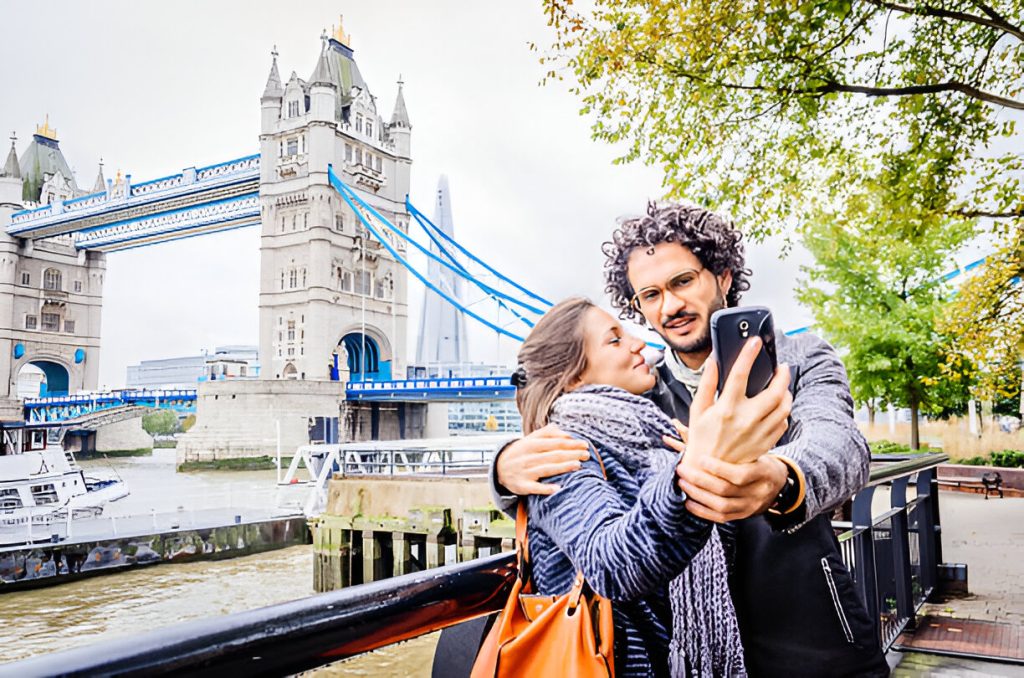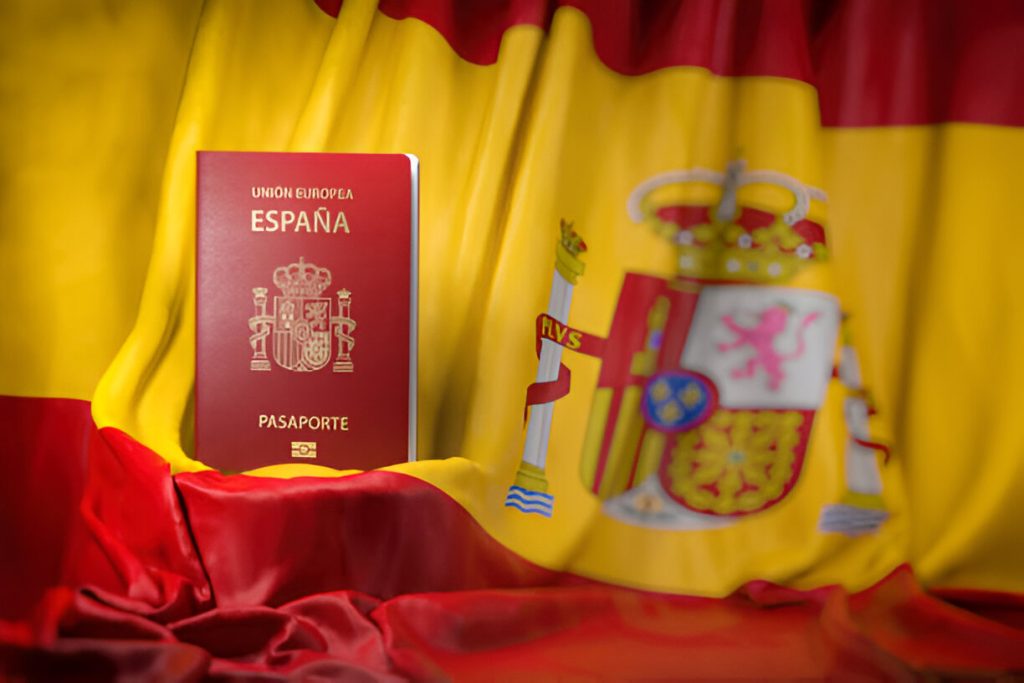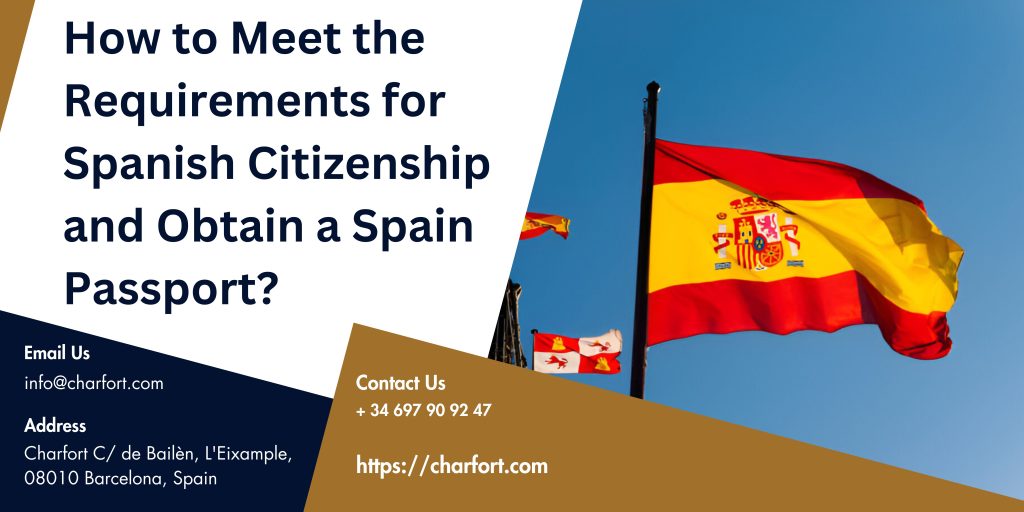
If you’re wondering about the requirements for Spanish citizenship, you’re not alone. Spain is a popular destination for people looking to settle down and become citizens, thanks to its beautiful landscape, rich history, and high quality of life. Becoming a Spanish citizen is more than just a title—it’s about embracing a new way of life and securing your place in one of Europe’s most vibrant countries. In this blog, we will dive deep into the different pathways to acquiring Spanish citizenship, from general requirements to unique circumstances like citizenship by descent.
General Requirements for Spanish Citizenship Through Residency
The first path most people consider for how to get Spain citizenship is through legal residency. This is the most common and widely applicable method.
Timeframe for Residency
To be eligible for citizenship, you must legally reside in Spain for a minimum period. Generally, this means living in Spain for ten years before applying. This residency must be uninterrupted, meaning you should not spend too much time outside of Spain during this period.
Legal Documentation Needed for Residency
Besides living in Spain for the required amount of time, you must also maintain legal residency. This involves holding a valid residence permit, registering with local authorities, and ensuring that all your paperwork—such as taxes and municipal registrations—is up to date. Without these, your application could face delays or be rejected.
Exceptions to the Ten-Year Requirement
For some, the residency period can be reduced. If you are from an Ibero-American country, Andorra, the Philippines, Equatorial Guinea, or Portugal, the residency requirement drops to two years. Refugees can apply after five years, while those married to a Spanish citizen need only one year of residency before they can apply.
Can You Get Spanish Citizenship Through Marriage to a Spanish National?
Another common path to Spanish citizenship is through marriage. If you are married to a Spanish citizen, your path to acquiring citizenship is significantly shorter.

One-Year Residency Requirement for Spouses
Unlike the standard ten-year residency requirement, those married to a Spanish citizen can apply for citizenship after just one year of legal residency in Spain. This is a great benefit, but there are still some requirements you’ll need to meet.
Proving Your Marriage is Valid
When applying for citizenship through marriage, you will need to provide proof that the marriage is legitimate. This includes your marriage certificate, proof of cohabitation, and documents showing that the relationship is ongoing. The authorities will also check to ensure you have met the one-year residency requirement.
Spanish Citizenship by Descent – Do You Qualify?
If you have Spanish ancestry, you may be able to apply for Spanish citizenship by descent. This can be a quicker and more straightforward path for many individuals.
What Counts as Spanish Descent?
To qualify, you must have a Spanish parent or grandparent. If you can prove your family lineage through birth certificates, marriage certificates, or other documents, you may not have to meet the usual residency requirement.
Citizenship for Sephardic Jews
Spain offers a special route for Sephardic Jews who can prove descent from Jews expelled during the Spanish Inquisition. This path does not require residency in Spain and offers a more direct way to apply for citizenship.
What is the Process for Naturalisation in Spain?
For some, citizenship through naturalization is an option. This is a discretionary path that the Spanish government may offer in exceptional cases.
Special Contributions to Spanish Society
Naturalization is typically reserved for individuals who have made extraordinary contributions to Spain. These could be in areas like arts, culture, or science. While this path is less common, it’s an important one for those who have established significant ties to Spain through their work.
Applying for Citizenship Through Naturalization
If you believe you qualify for naturalization, you’ll need to submit a detailed application proving your contributions to Spanish society. Supporting evidence, such as awards, recognitions, and other documentation, will be key to getting approved.
Application Process for Spanish Citizenship:
After meeting the requirements for Spanish citizenship, the next step is to submit an application.

Submitting Your Application to the Civil Registry
Your citizenship application must be submitted at the Civil Registry in Spain. You’ll need to fill out forms, provide proof of residency, and submit several legal documents. The more complete your application, the smoother the process will be.
Required Documentation
The application package typically includes your residence permit, passport, birth certificate, marriage certificate (if applicable), and proof of financial stability. You will also need to pass a criminal background check and, in some cases, complete the CCSE (Constitutional and Sociocultural Knowledge of Spain) exam.
Timeframe for Processing Your Application
Once your application is submitted, you can expect a waiting period of one to three years. While the processing time can vary depending on your situation, patience is essential during this part of the process.
Can You Hold Dual Citizenship with Spain?
Dual citizenship is an important consideration for many individuals seeking Spanish nationality.
Spain’s Dual Citizenship Rules
Spain does not generally allow dual citizenship, except for citizens of Ibero-American countries, Andorra, the Philippines, Equatorial Guinea, and Portugal. If you are from another country, you may be required to renounce your original nationality.
What Happens If You Must Renounce Your Original Citizenship?
Renouncing your previous nationality can be a big decision. Before moving forward with this step, it’s important to weigh the pros and cons. A Spain passport offers many benefits, including visa-free travel within the European Union and the ability to live and work anywhere in the EU.
Children Born in Spain Automatically Become Citizens?
Many people ask whether children born in Spain automatically receive citizenship. The answer depends on specific conditions.
Spain’s Citizenship Laws
Spain does not apply the principle of jus soli, meaning being born on Spanish soil does not automatically grant citizenship. However, if the parents are stateless or unable to pass their nationality to the child, the child may be granted Spanish citizenship.
Citizenship for Children of Legal Residents
Children born in Spain to legal residents may also apply for citizenship, but this is not automatic. The parents need to follow a specific process to ensure the child can claim Spanish nationality.
Adoption and Spanish Citizenship
Children adopted by Spanish citizens are eligible for citizenship, provided the adoption is recognized by the Spanish government. Once adopted, the child will have the same rights as any other Spanish national.
What Does the CCSE Exam Involve?
The CCSE exam tests your knowledge of the Spanish Constitution and sociocultural norms. It’s designed to assess whether you understand basic facts about Spain’s political system, rights, and cultural practices. There are plenty of resources available to help you prepare for the CCSE, including official study guides and practice tests. Passing the exam is a requirement for most citizenship applicants, so it’s important to prepare thoroughly.
Is It Possible to Lose Spanish Citizenship After Obtaining It?
Once you’ve obtained Spanish citizenship, there are certain situations in which it could be revoked.

Losing Citizenship by Naturalization
If you gained Spanish citizenship through naturalization and are later found to have falsified information or committed a crime, your citizenship could be revoked. Additionally, if you voluntarily obtain another nationality (without being from a country that allows dual citizenship with Spain), you may lose your Spanish citizenship.
What to Do If You Risk Losing Citizenship
If you believe your citizenship is at risk of being revoked, it’s essential to consult with legal experts who can guide you through the process of maintaining your status.
FAQs
How long do I need to live in Spain before I can apply for citizenship?
You generally need to live in Spain for ten years before applying, although exceptions apply for certain cases.
Can I apply for Spanish citizenship if I’m married to a Spanish national?
Yes, you can apply after one year of legal residency if married to a Spanish citizen.
Does Spain allow dual citizenship?
Spain only allows dual citizenship with specific countries. Most applicants will need to renounce their previous nationality.
What is the CCSE test, and do I need to take it?
The CCSE test covers Spain’s Constitution and sociocultural norms. Most applicants will need to take and pass this test.
Can children born in Spain automatically become citizens?
Not automatically. Citizenship for children born in Spain depends on the legal status of the parents.
Conclusion
Becoming a Spanish citizen opens up a world of opportunities, from living freely in Spain to holding a Spain passport with access to the European Union. Whether you’re applying through residency, marriage, or descent, the requirements for Spanish citizenship are clear but require careful planning and preparation. At Charfort, we provide tailored support to help you meet these requirements and successfully complete your citizenship application.

